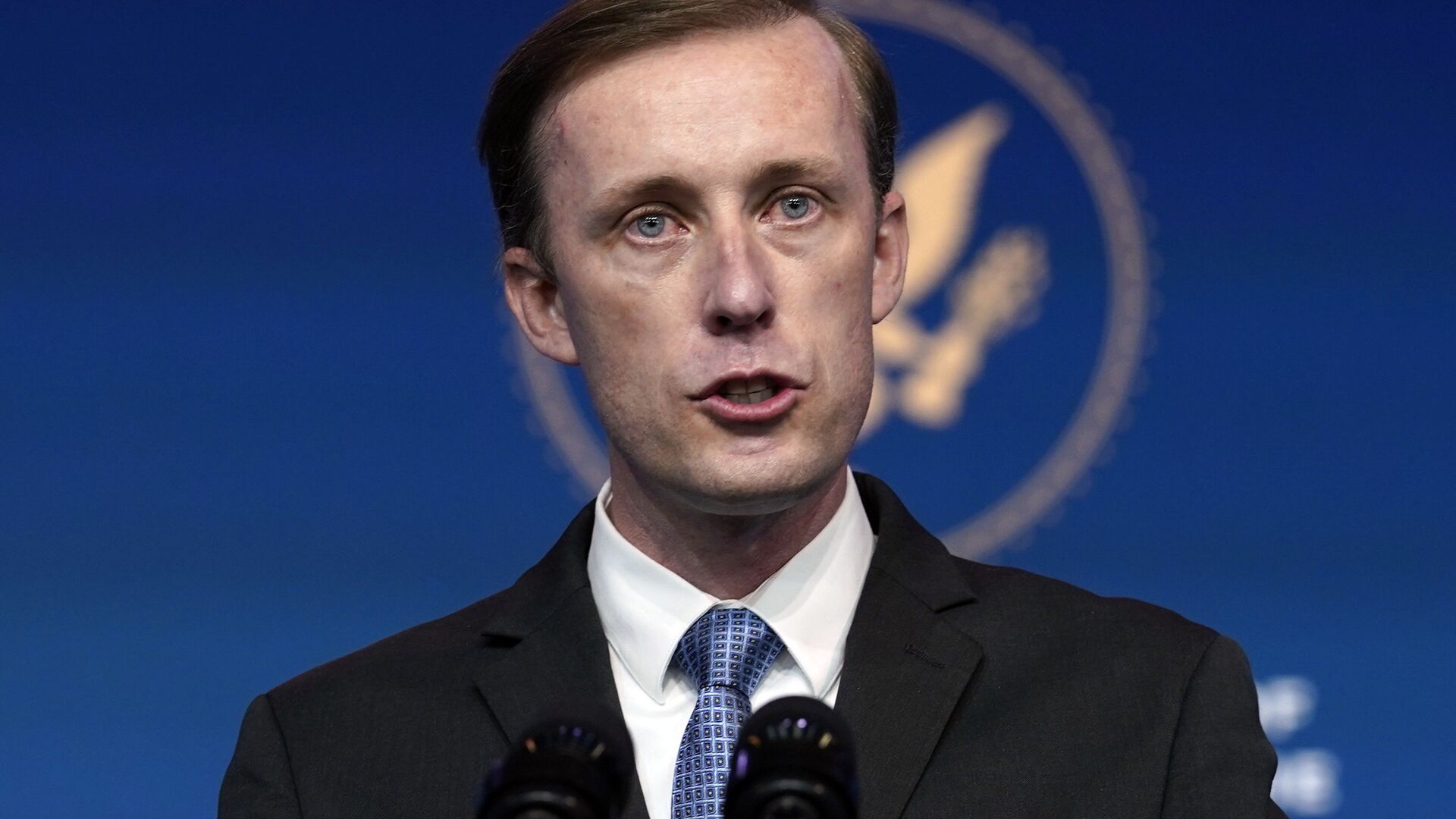US Prepared for Dialogue With Russia 'in the Appropriate Format' - Sullivan
18:33 GMT 17.12.2021 (Updated: 13:27 GMT 06.08.2022)

© AP Photo / Carolyn Kaster
Subscribe
White House national security adviser Jake Sullivan said Friday the US believed there was still an opportunity for progress in talks with Russia held "in the appropriate format."
"We have been clear as the United States - and just yesterday, the 30 nations of the NATO alliance were clear in a statement that came out of the North Atlantic Council - we're prepared for dialogue with Russia," Sullivan said Friday at an event hosted by the Council on Foreign Relations think tank in Washington, DC.
"We've had dialogue with Russia on European security issues for the last 20 years. We had it with the Soviet Union for decades before that. That has sometimes produced progress, sometimes produced deadlock, but we are fundamentally prepared for dialogue," the security adviser said. "Russia has now put on the table its concerns with American and NATO activities, we're going to put on the table our concern with Russian activities that we believe harm our interest and values. That's the basis of reciprocity upon which you would pursue any kind of dialogue."
Sullivan added that while progress would be possible in some areas, the two nuclear powers were likely to continue disagreeing. He didn't elaborate on which areas he thought unity or disparity might occur.
"[F]undamentally, our strategy is going to be coordinate closely, to have allied unity, and then be prepared to sit with Russia and respond positively to the idea that we can have a discussion in the appropriate format, on the principle of 'nothing about you without you,' and see where it takes us," he added.
US President Joe Biden spoke with Russian President Vladimir Putin on the phone last week, but their talks yielded little more than threats by Biden to impose crippling sanctions on Moscow in the event of an invasion of Ukraine, including cutting it off from the SWIFT international bank transfer network and attempting to close the Nord Stream 2 gas pipeline from Russia to Germany.
Russian De-Escalation Proposals Ignored
Sullivan's comments come after a call on Thursday by NATO for Russia to "immediately de-escalate, pursue diplomatic channels, and abide by its international commitments on transparency of military activities."
The alliance, which includes six nations that share a border with the Russian Federation, said it was "gravely concerned" by what it called the "substantial, unprovoked, and unjustified Russian military build-up on the borders of Ukraine in recent months," referring to the reported transfer of Russian military units into its southern region some distance from the border.
NATO and Ukraine, which is not a member of the alliance, have fretted that Moscow might be preparing for an invasion of Ukraine, but the administration of Russian President Vladimir Putin has denied such accusations, saying Russia has no intention of interfering in Ukrainian affairs.
The Russian Foreign Ministry has laid out a detailed proposal for de-escalation and longer-term security guarantees for both sides that NATO has so far not replied to.
The proposals include a commitment to limiting the size of military units engaged in exercises in areas close to Russian and NATO-member's borders, a maximum approach distance between ships and aircraft, and not using the territory of other nations to plan attacks on each other, including no further expansion eastward for NATO and no building of new NATO bases on the territory of former Soviet republics that aren't members of the alliance - a thinly veiled reference to Ukraine that could also apply to Belarus, Moldova, Georgia, Armenia, and Azerbaijan.
Ukranian President Volodymyr Zelenskyy has increased his pressure on NATO for Kiev to be admitted to the alliance, claiming earlier this year that NATO membership was the only solution to the civil war in Ukraine's eastern Donbas region, where Russian-speaking minorities have defended their autonomy and minority rights from Kiev since a US-backed nationalist coup in 2014. The same coup caused Russian-speaking Crimea to declare independence from Kiev and later vote to rejoin Russia. NATO doesn't recognize the Crimean referendum, claiming Russia illegally seized the Black Sea peninsula and that Moscow is backing the self-declared Donbas republics - claims Moscow has denied.
Answering a question about if and why the White House wasn't looking to expand the $450 million weapons package sent to Kiev in 2021, Sullivan said the US was "constantly assessing additional needs that Ukraine has, putting together potential packages, and those packages are actively under consideration," adding it would ultimately be up to US President Joe Biden.
He added there was "no particular calculus" about Russian concerns about those weapons packages.
Moscow has long worried about NATO's expansion eastward since the end of the Cold War. The Brussels-based alliance was formed in the late 1940s in response to fears of a Soviet attack, eventually growing to encompass most of Europe's capitalist nations. By 1955, a parallel alliance between the Soviet-allied socialist nations of Central and Eastern Europe, the Warsaw Pact, had also formed.
At the end of the Cold War, when socialism was overthrown in Europe and the Warsaw Pact dissolved, NATO leaders gave guarantees to the Soviet leadership that the alliance would make no attempt to expand eastward beyond a reunified Germany. However, in the 30 years since, nine former Soviet allies and former Soviet republics have joined the collective security pact, with substantial NATO forces being positioned in their territory following the events of 2014.
